It’s easy to forget that we rely on so many wonderful technological breakthroughs that were based on observations of raw nature. Animals probably think that we are a little late to the party. But never mind, let’s take a moment to appreciate the mutual benefits of evolved design. Here are some things you surely thought were all human. You’re about to find out that animals got there first.
Air Brakes
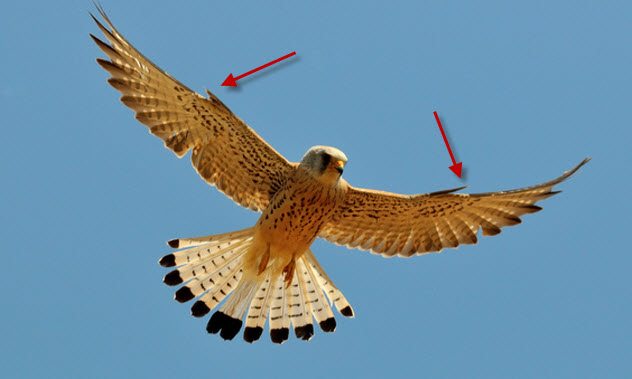
Have you ever looked out the window of an airplane just before landing and noticed small slats pop up along the wing? These slats are designed to prevent the airplane from stalling as it slows.
Birds have their own version of this clever technology in the form of specially adapted feathers. Bird feathers are broadly divided into primary and secondary feathers, with some being vital for flight and others more for display.
These feathers can be adjusted by a bird to open up a small slot that helps to stabilize the bird and avoid a stall in slow flight or upon landing.
Sonar
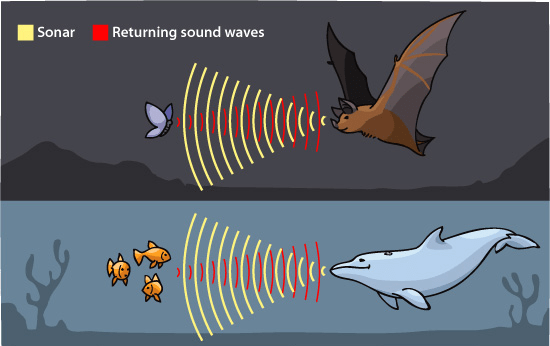
https://animals.howstuffworks.com
Ships, submarines, and seagoing devices are often equipped with sonar to navigate, avoid obstacles, and track down targets underwater. This is particularly useful for the military, of course, but it was whales and dolphins that invented it first.
These amazing animals can discern differences between even very small objects from 15 meters (50 ft) away using their sonar skills alone. They don’t need an electronic device to broadcast their frequencies across the ocean. They’ve evolved to use their own voices and the receptors in their bodies to find their way around under the sea.
Bioluminescence
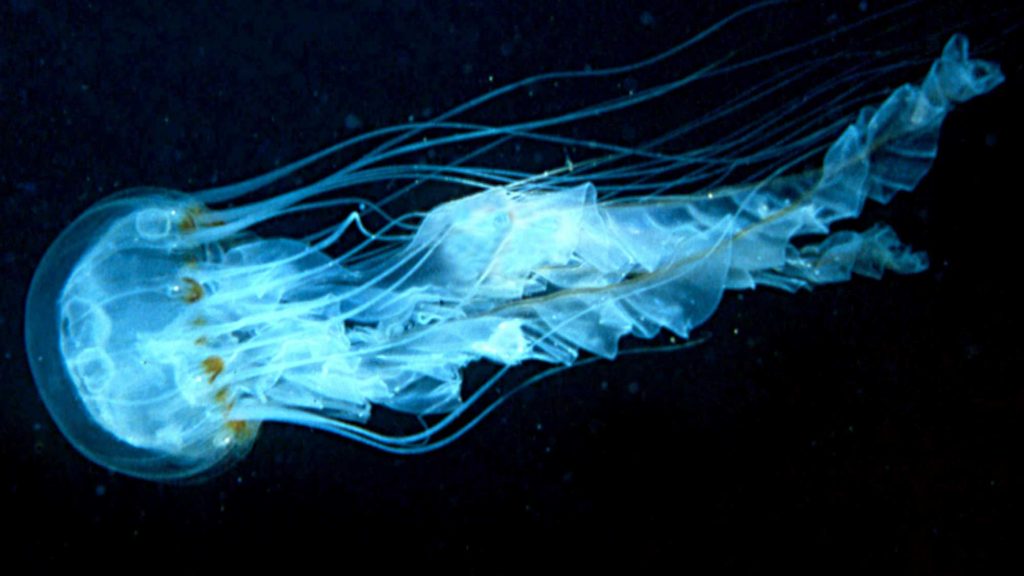
Sea creatures, Fireflies, glowworms, and even some types of fungi also use bioluminescence to their advantage. All these organisms have evolved to glow in the dark for reasons as diverse as attracting mates, luring prey toward them, warning predators away from them, and communicating with others of their species. Bioluminescence is created by a simple chemical reaction that involves luciferin, an enzyme, and a few other cofactors specific to individual creatures and plants.
Solar Power

Recently, a group of scientists were studying spotted salamanders and found that the embryos of these animals contained algae that live inside the baby salamanders before they hatch. The algae survive by eating the waste produced by the baby salamander embryos. In turn, the algae produce energy and nutrition for the developing babies.
These salamanders (which are amphibians, not reptiles like lizards) are essentially brought up via photosynthesis, the same process used by leaves on trees to convert sunlight into energy.
UV Detection
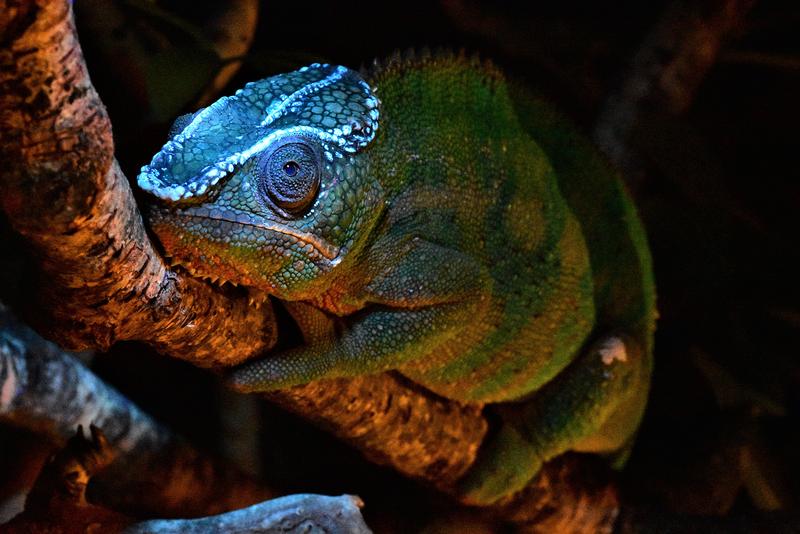
Humans are subject to the effects of UV light all the time, but we can’t naturally see it. These days, you can buy light detectors that “translate” UV waves into a form you can see. The structure of an animal’s eye is partly made up of proteins called opsins. Some animals have only one or two types of opsins in their eyes, so they see fewer colors and types of light waves than humans. In contrast, we have three types of opsins, allowing us to see a wide spectrum of color. Some animals, such as the chameleon, have more than three types of opsins in their eyes. So chameleons can see UV light rays in addition to the colors that humans see. Chameleons do all that with their naked eyes, no devices required. There are many other reptiles, insects, birds, and water-dwelling creatures that may also see UV light.
Farming

https://www.westcoastseeds.com
Ants have been farming intensively for a lot longer than 50 years. They love to feed off the sticky, sugary secretions that aphids poop out after eating plants.
The ants go to great effort to ensure a continuous supply of this “honeydew” by preventing the aphids from moving too far from the ant colony. The ants will bite off the aphids’ wings and emit chemicals that retard the growth of these wings. Ants were recently found to encircle groups of aphids with the ants’ chemical footprints, normally used to mark the territory of the ant colony. These footprints seem to make the aphids slow and unlikely to move from their spots, giving the ants reliable access to their favorite sugary food source. The chemical footprints evidently put off predators, such as ladybugs, from eating the aphids. So the enslaved aphids are at least protected from those big, scary, spotted bugs, thanks to the ants.
Soundproofing
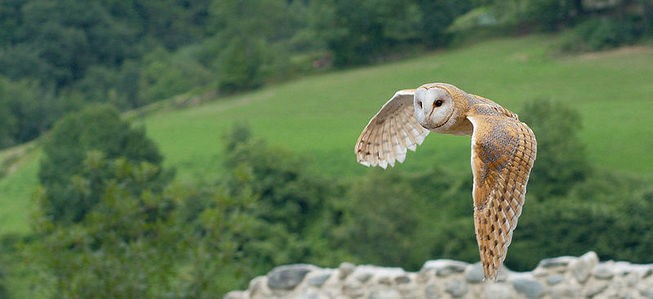
For generations, owls have been making use of their sound proofing abilities to glide in and snatch their unsuspecting prey with deadly precision, owls must be completely silent because the rodents they eat have incredibly sensitive hearing. Feathers of the barn owl are so soft and fine that it cannot afford to hunt in wet weather as it would become waterlogged and cold. This is the trade-off for the owl’s perfectly soundproofed body, which is ideal for floating in the dark to within a few feet of a small mammal before dropping down to grasp it away in those sharp talons.
Cloning
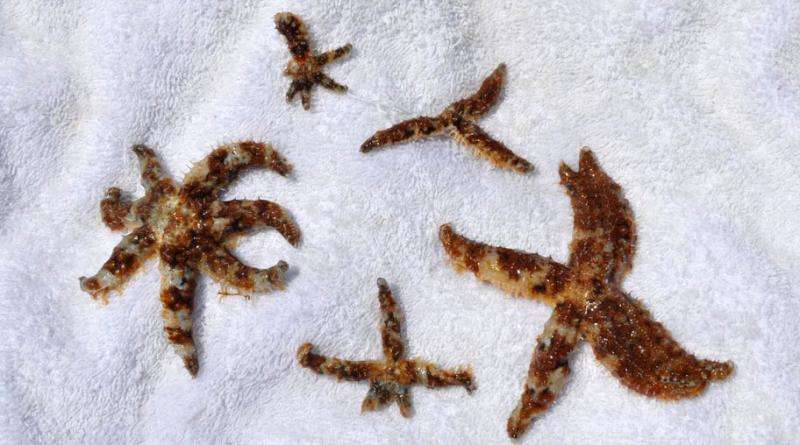
Starfish have been asexually reproducing with no difficulty well before cloning was even a word. Not only that, but starfish that clone themselves live longer and healthier lives than starfish that reproduce sexually. Additionally, if a starfish breaks a limb or even breaks its body in half, the creature will simply regrow and regenerate itself as needed. Some species even have the ability to produce a new body from part of a severed limb.
GPS

The migration of birds is still a remarkable mystery to scientists. There are many possible explanations as to how birds know where to go—the position of the Sun, the use of a star map, their sense of smell, detection of the Earth’s magnetic field, or even the memory of landmarks from their previous journeys. It’s as though they have some highly advanced GPS technology—that is far ahead of human capabilities—already built into their little bird brains.
Retractable Blades
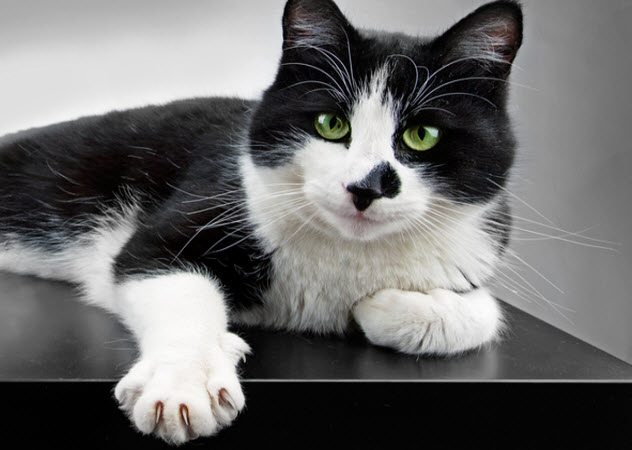
The domestic cat claws can be released or sheathed at will, keeping the claws sharp and preventing the cat from injuring itself when using its paw to wash its face. The claws can be drawn back into soft integral sockets in the cat’s paw, keeping them out of harm’s way.
Related Content
Incredible Animal FactsAnimals That People Eat AliveFunny Cats and Dogs